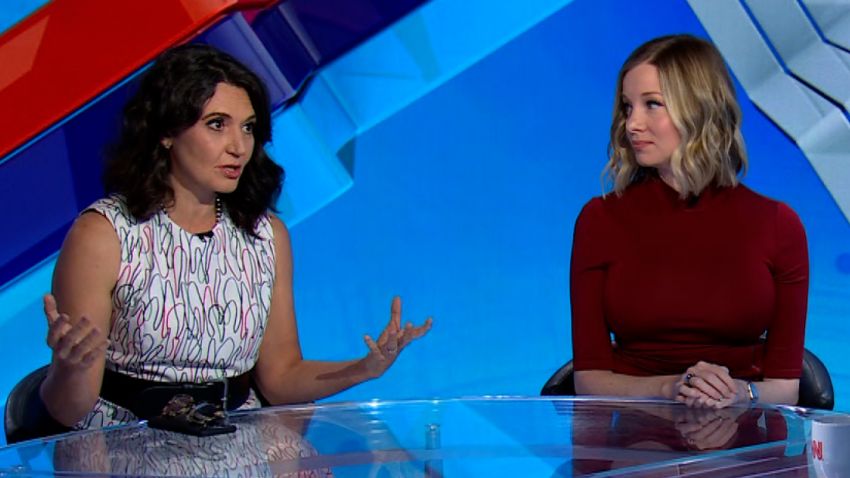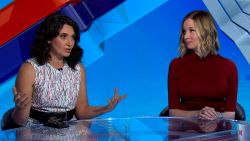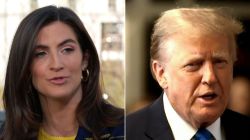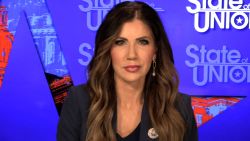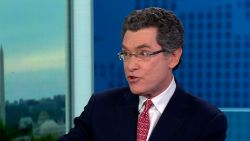Don Bolduc, who put election denialism at the center of his campaign, defeated establishment favorite Chuck Morse in New Hampshire’s GOP Senate primary, the latest in a series of blows to Republicans’ hopes of winning back the majority in the chamber this fall.
Bolduc now joins the likes of Herschel Walker in Georgia, J.D. Vance in Ohio, Mehmet Oz in Pennsylvania and Blake Masters in Arizona as Republican candidates who ran – and won – primary campaigns by aligning themselves with the coalition built by former President Donald Trump but who appear to have much work to do when it comes to courting a general election audience. (Sidebar: Trump did not endorse Bolduc – or any other candidate – in the New Hampshire primary.)
Throughout the campaign, Bolduc embraced a series of controversial positions – most notably, contra facts, that the 2020 election was stolen from Trump. “I signed a letter with 120 other generals and admirals saying Trump won the election, and damn it, I stand by [it],” the retired Army brigadier general said at an August debate. He has also called for the repeal of the 17th Amendment, which allows voters to directly elect their senators. After the FBI executed a search warrant on Trump’s Mar-a-Lago home, Bolduc questioned whether the agency was needed.
Those positions caused enough worry about Bolduc’s viability in a general election that popular New Hampshire Republican Gov. Chris Sununu, who had stunned the political world by deciding not to run against Democratic Sen. Maggie Hassan himself, endorsed Morse.
“The Republican candidate who Maggie Hassan is most afraid to face in this election is small-business owner and Senate President Chuck Morse,” Sununu wrote in an op-ed in the New Hampshire Union Leader over the weekend.
Sununu was more blunt about Bolduc and his general election prospects last month. “He’s not a serious candidate, he’s really not,” Sununu said in a radio interview. “If he were the nominee, I have no doubt we would have a much harder time trying to win that seat back. So I don’t take him seriously as a candidate. I don’t think most people do.”
Sununu also referred to Bolduc as part of a passel of “conspiracy-theory extremists” running for Republican Senate nominations around the country.
(For his part, Bolduc had previously taken credit for keeping Sununu out of the Senate race.)
Sununu wasn’t the only establishment figure who was decidedly leery about the prospect of Bolduc as the GOP nominee. A group with links to a super PAC aligned with Senate Minority Leader Mitch McConnell spent more than $4 million on ads in the final stretch of the race in an attempt to keep Bolduc from winning.
For Republicans, the declining competitiveness of New Hampshire mirrors the broader struggles they’ve had in Senate races this cycle. The seat was widely seen at the start of 2022 cycle as one of Republicans’ top pickup opportunities – as Hassan’s poll numbers were middling and Sununu was viewed as a likely candidate. Then last November, Sununu surprisingly decided not to enter the race, announcing that he would instead seek another term as governor.
“I’d rather push myself 120 miles an hour delivering wins for New Hampshire than to slow down, end up on Capitol Hill debating partisan politics without results,” he said at the time. “That’s why I am going to run for a fourth term.”
Sununu’s decision caught McConnell and the rest of the Senate Republican establishment flat-footed – and created a vacuum that Bolduc filled.
Even before Bolduc’s victory on Tuesday, the race was showing signs of slipping away from Republicans. The Cook Political Report with Amy Walter, a nonpartisan handicapping tip sheet, rated it as a “lean Democratic.” Given the extremity of Bolduc’s past positions as well as his decidedly weak fundraising – he had $84,000 in the bank as of August 24 compared to Hassan’s $7.3 million – it’s possible that the race is even less competitive than that at this point.
For Republicans, it’s another setback in a series of struggles of late. Election forecasters are now predicting that Democrats have better than a 70% chance of keeping their Senate majority come November, a prospect that was nearly unthinkable when this election cycle began.


